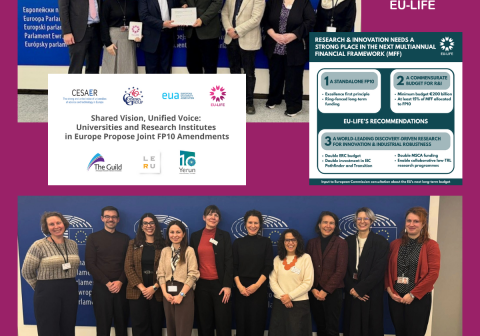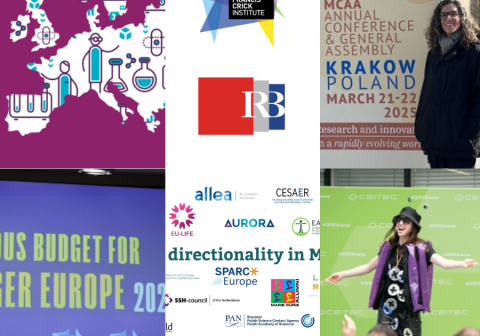EU-LIFE urges the European Commission, the EU Council and the European Parliament to leverage Research & Innovation as a key driving force to Competitiveness
EU-LIFE releases an open letter today in response to the European Commission’s proposal for the EU’s 2028–2034 Multiannual Financial Framework (MFF). The letter calls on the European Commission, the European Parliament and the Council of the EU to reinforce Research and Innovation (R&I) as a core engine of Europe’s competitiveness by committing to a transformative and ambitious Framework Programme (FP10).
"We welcome the European Commission’s proposal to significantly boost investment in research and innovation. This is a critical step to secure Europe’s global leadership in science. At the same time, we need to course-correct some parts of the proposal: funding must go hand in hand with sound governance. The independence and integrity of the FP10, including the ERC, are non-negotiable if we want this investment to truly deliver for Europe," said Marta Agostinho, Executive Director of EU-LIFE.
EU-LIFE welcomes several important commitments in the European Commission’s MFF proposal, such as the recognition of FP10 as a self-standing and independent programme, the proposed near doubling of its budget to EUR 175 billion; the reinforcement of excellence as the core principle; the retention of collaborative research within FP10, and the continued centrality of the European Research Council (ERC), the European Innovation Council (EIC) and the Marie Skłodowska-Curie Actions (MSCA).
Despite these positive signals, EU-LIFE raises strong concerns. It is vital to ensure the proposed FP10 budget is fully secured during the MFF negotiations and not diluted over time—especially considering that EUR 175 billion still falls short of the EUR 200 billion target broadly endorsed by the R&I community. On the other side, the signs of potential subordination of FP10 to the governance of the Competitiveness Fund is alarming, as it would undermine its impact and independence. Additional issues include threats to the ERC’s autonomous governance, insufficient support for early-stage research across all technology readiness levels, and vague definitions of "open" calls that may still limit bottom-up, investigator-driven science.
Read the open letter here: https://eu-life.eu/newsroom/publications/MFF-2028-2034-reaction



